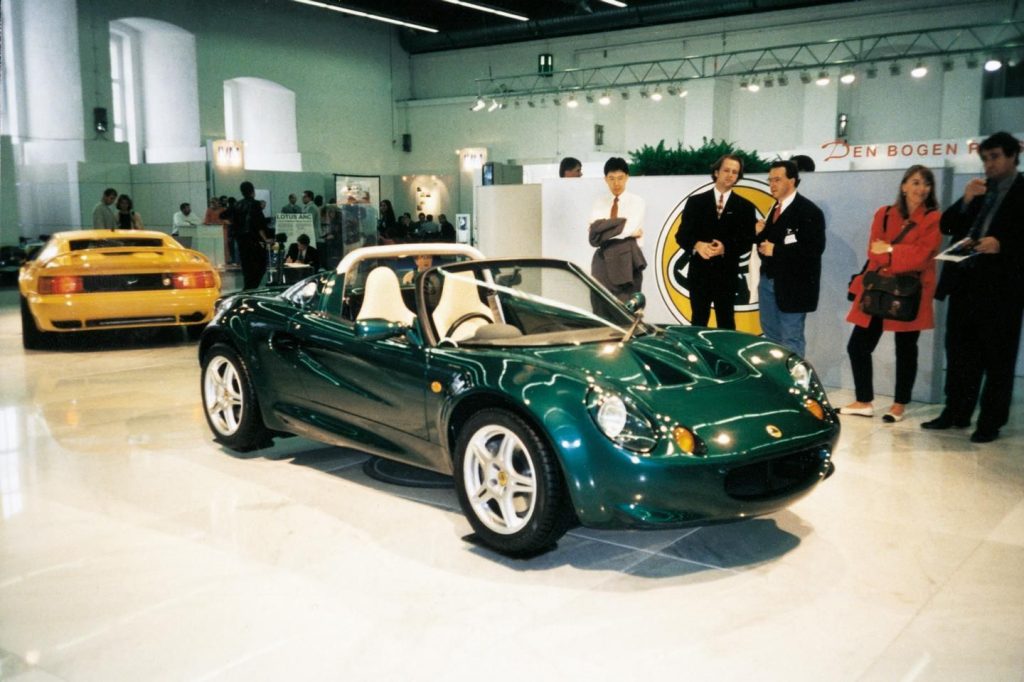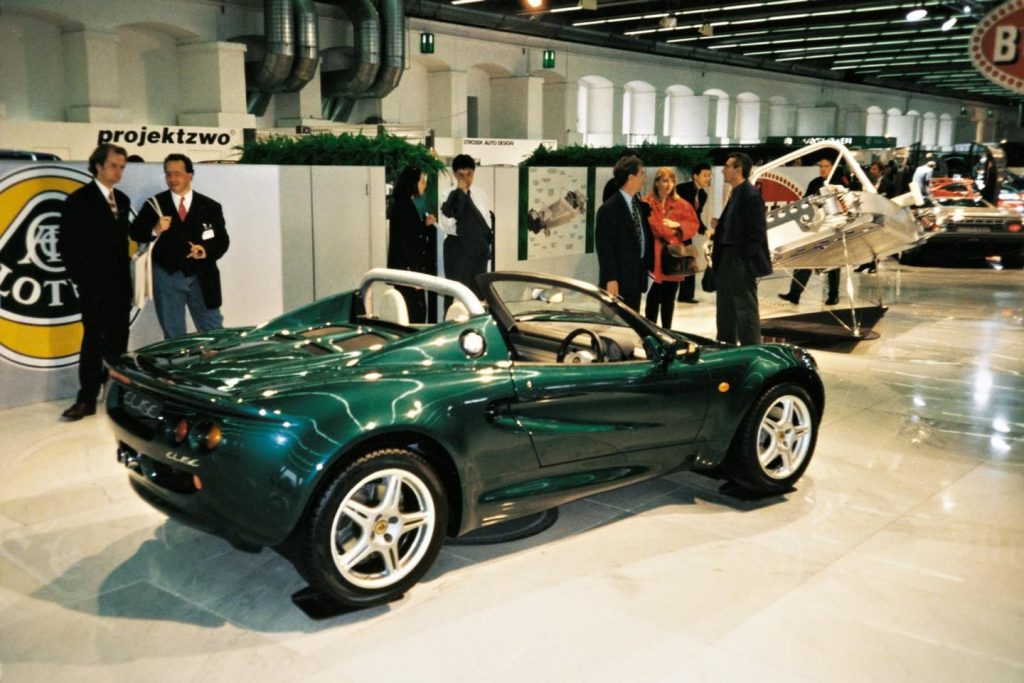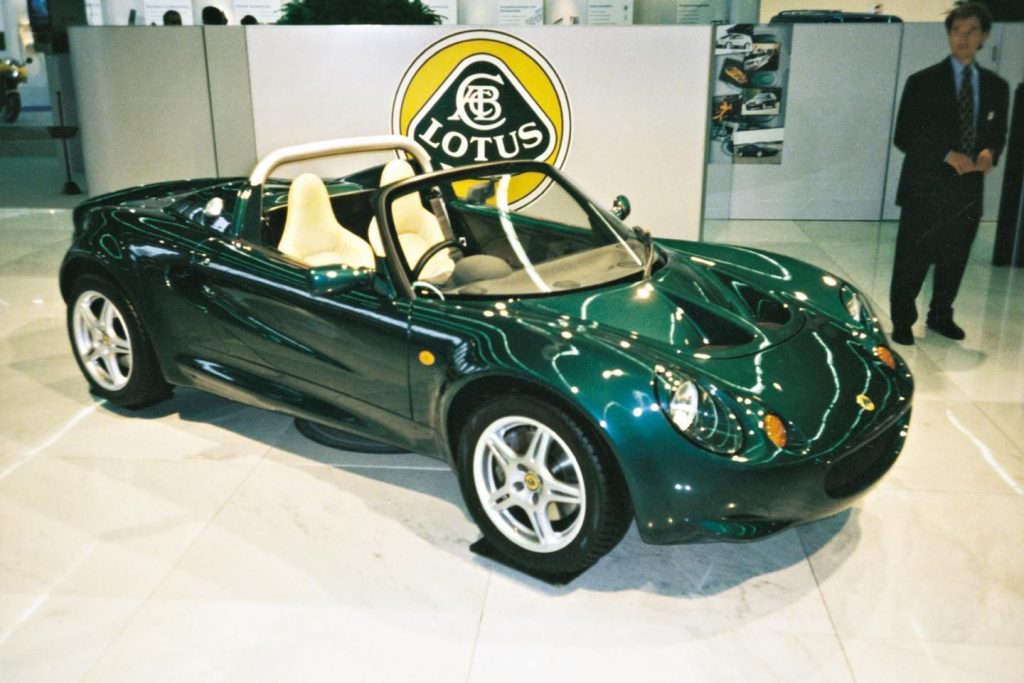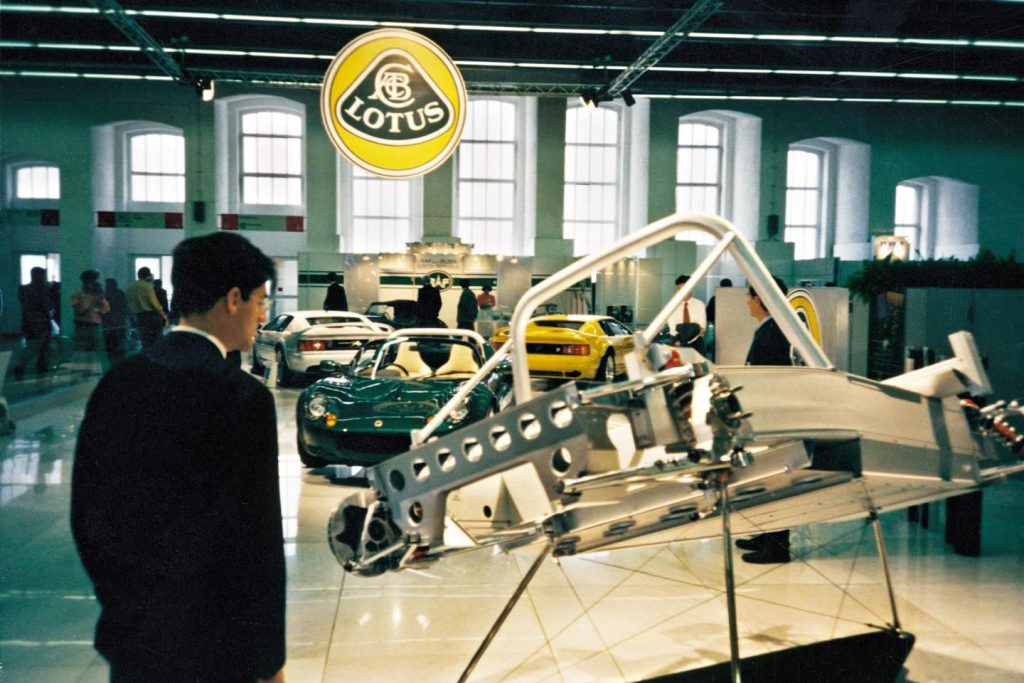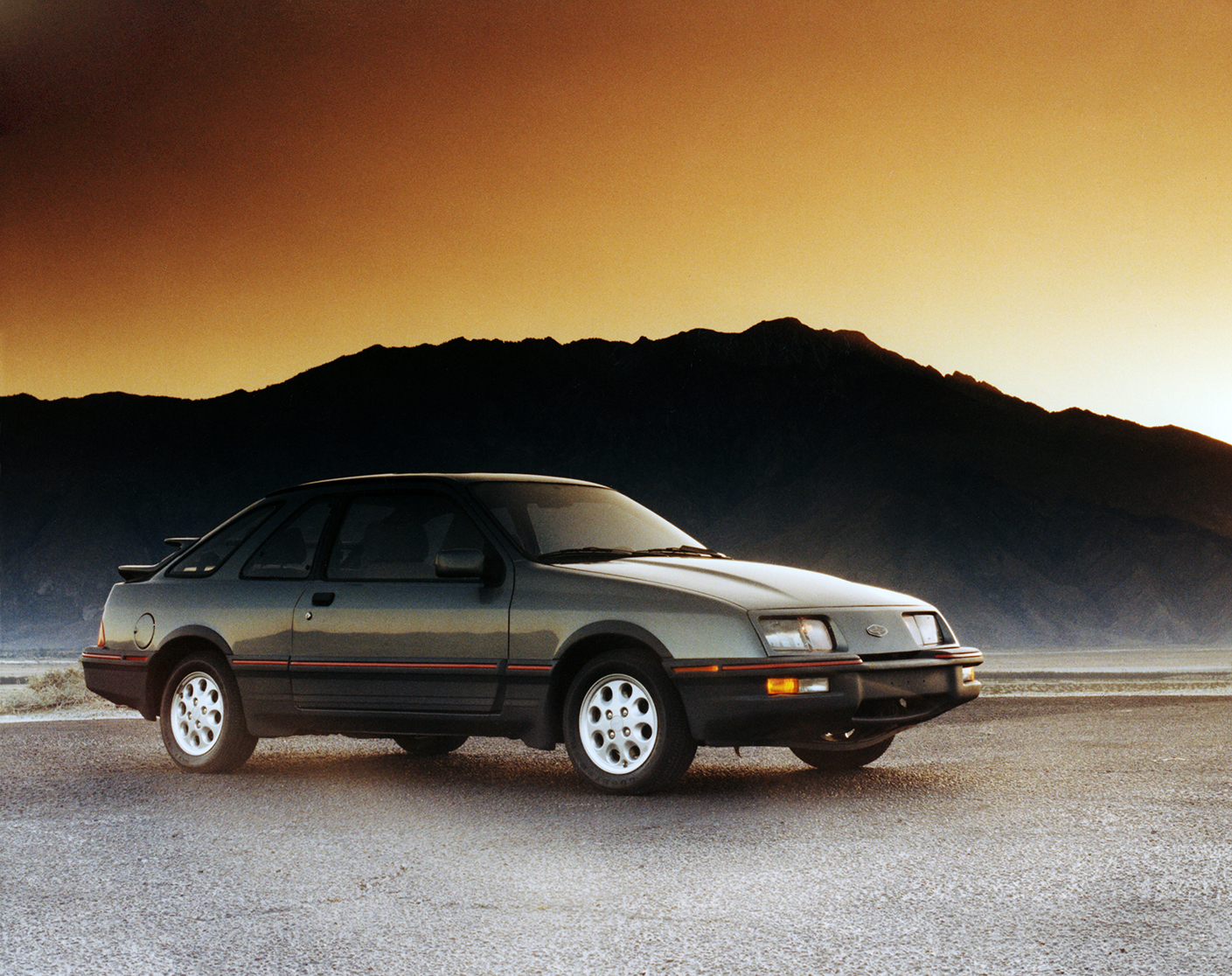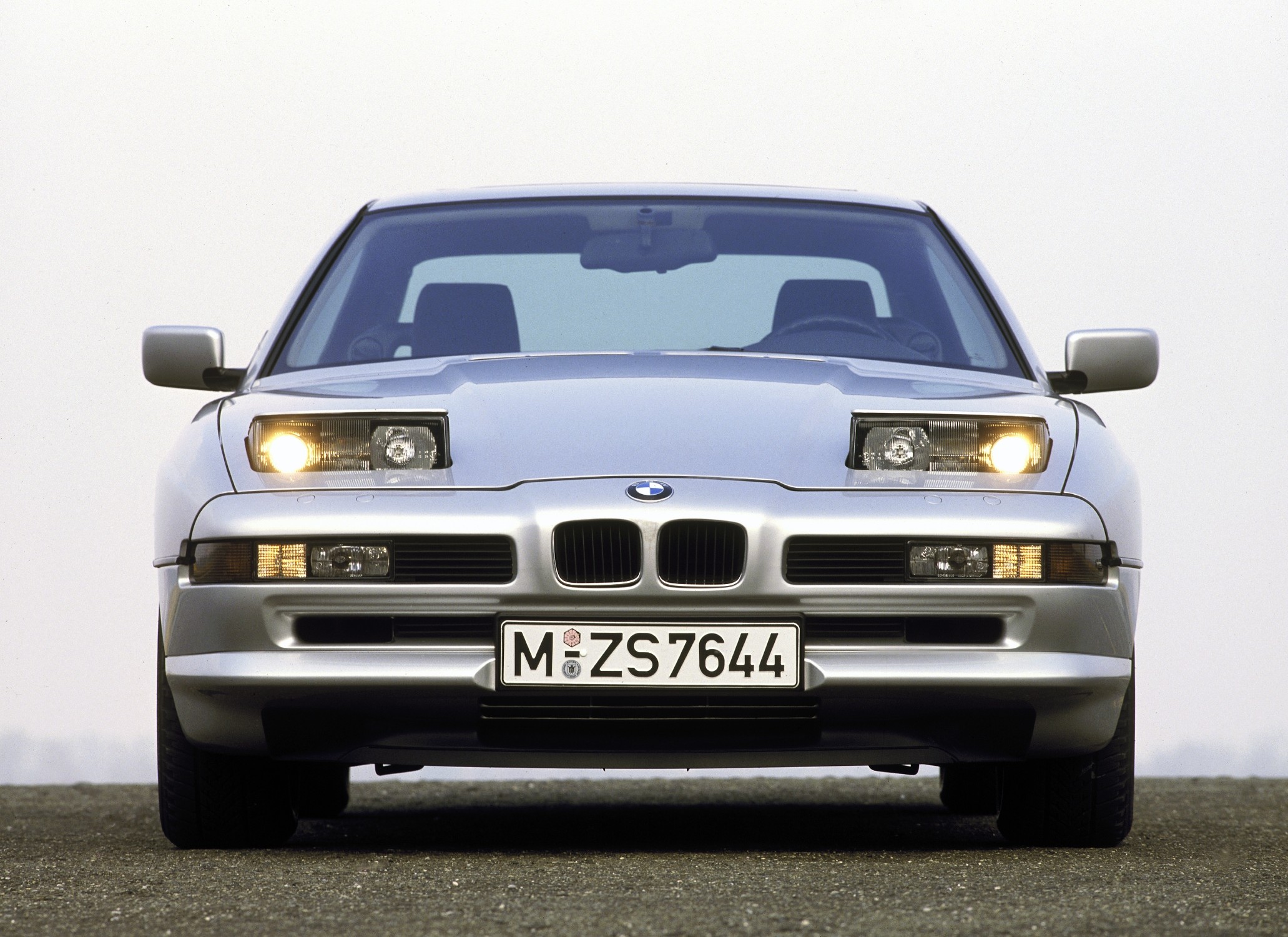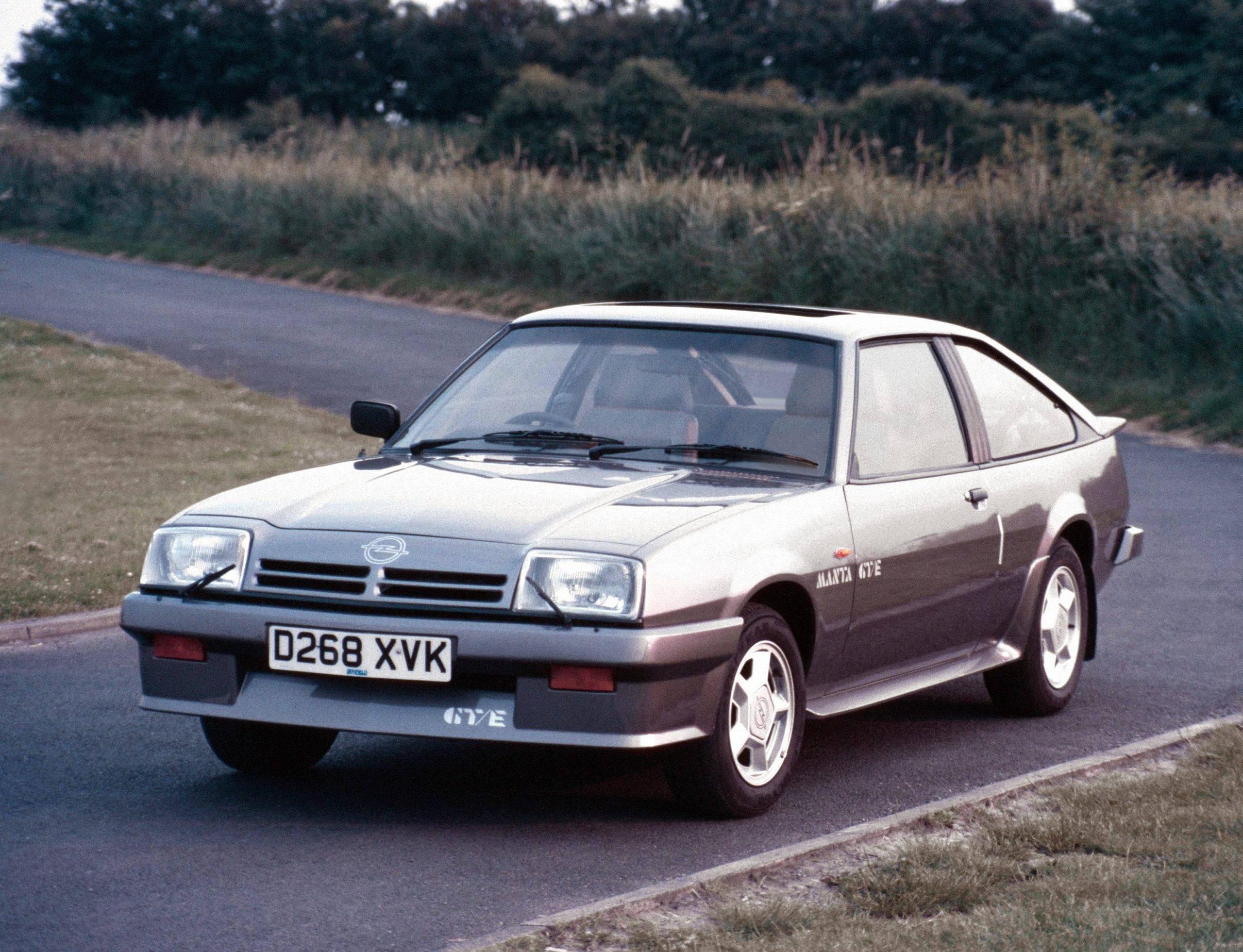Welcome to Freeze Frame, our look back at moments from this week in automotive history.
12 September 1995 – Lotus Elise unveiled in Frankfurt
It’s difficult not to feel a little melancholy at the disappearance of the Lotus Elise. For quarter of a century it absolutely defined Lotus, both in terms of the company’s ethos, and that the methods used in its construction, and indeed its essential underpinnings formed the basis of every model the company has built until the Evija hypercar was unveiled.

To give the Elise’s longevity some frame of reference, consider that other much-celebrated model, the Elan, lasted only eleven years, between 1962 and 1973. The Lotus Seven, pre-Caterham, only went six better than that. Only the Esprit persisted longer, but arguably changed far more over its 1976-2004 run than the Elise did, and at just over 10,000 units, sold roughly a fifth as well.
The first memories most of us have of the “Type 111” are of its debut at the Frankfurt motor show in 1995. It was there we saw its unusual form, penned by Julian Thomson (until recently at Jaguar), with inspiration from the Dino 246GT and a front grille and friendly expression not unlike that of those first Elans.
The name, while staying true to the Lotus habit of creating monikers beginning with E, was suggested by then-chariman Romano Artioli, after his granddaughter Elisa. And as the covers came off the car in Frankfurt, the two-and-a-half year old Elisa was behind the wheel.
“They trained me to say, ‘I am Elise!’” Elisa told us back in March, “and they put me under a cover for some time at home, so I wouldn’t be scared on the day of the presentation.”
Elisa now, perhaps predictably, owns an Elise, given to her when she was just four years old (and as she revealed when we talked about her life with the car, quickly became a subject of boredom for her fellow school classmates and teachers…). But the cute publicity stunt still couldn’t distract from the spectacular vehicle itself, which wowed the press with numerous technological advancements.
Chief among them was the chassis, using bonded extruded aluminium sections for a racing-car like tub. Its powerplant was the then-advanced Rover K-Series, its sintered aluminium brake discs were quite unlike those of any other car. Officially, the kerb weight was 725kg – just 45kg more than an early Elan, despite being longer, wider and taller. Early reports suggested Lotus was targeting as low as 550kg, but it still rendered the Elise among the lightest cars on the road.
If the reception at Frankfurt was glowing, it would be nothing compared to the reports when the media was finally allowed to drive the car in 1996. While tricky in some situations, it was – and to this day, still is – rightly considered among the all-time great driver’s cars.
Read more
The dazzling Lotus Elise is 25 – do you know these 25 facts about Britain’s game-changer?
Your classics: Elisa Artioli and her Lotus Elise
The light show is over: Driving the final Lotus Elise

